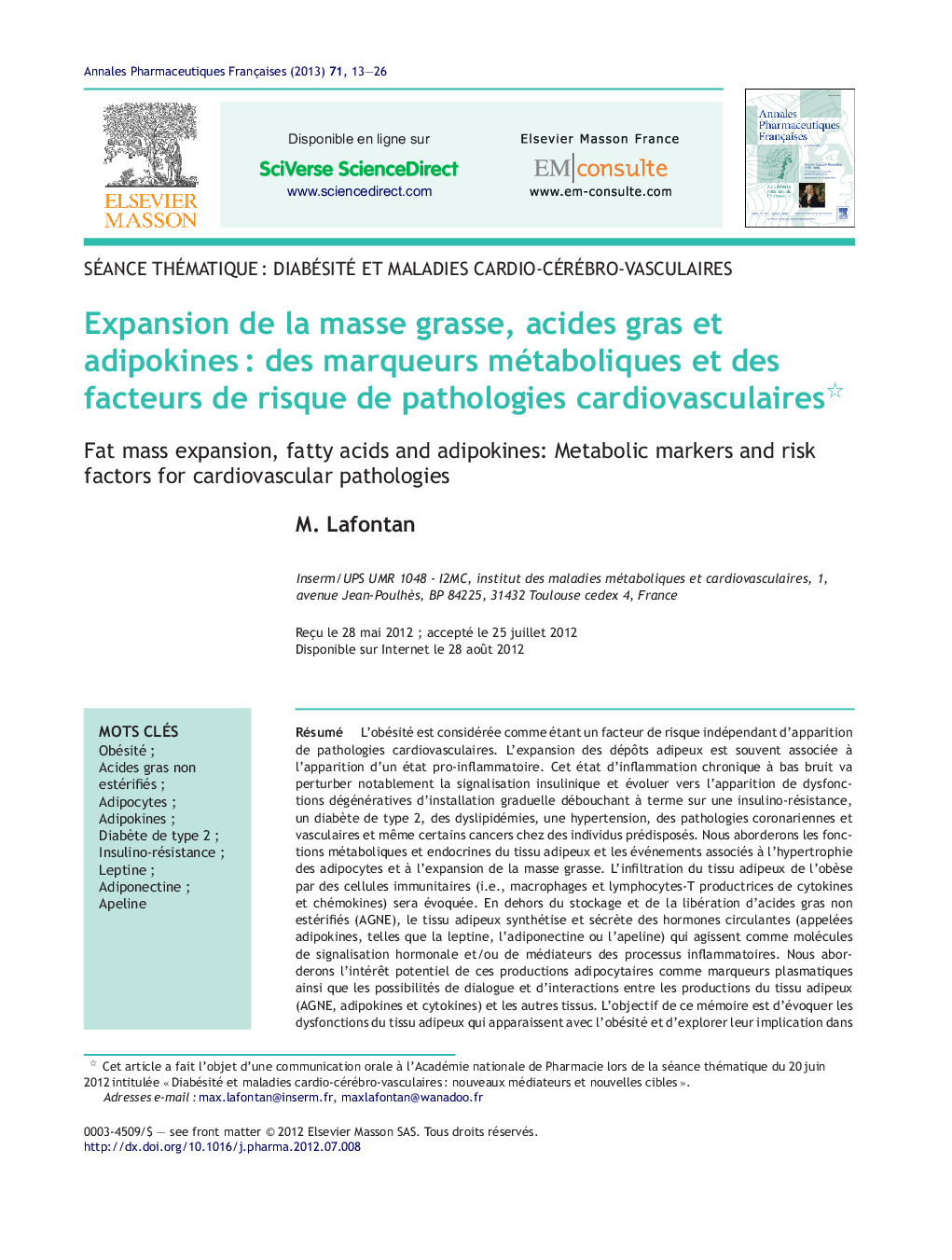| Article ID | Journal | Published Year | Pages | File Type |
|---|---|---|---|---|
| 2477935 | Annales Pharmaceutiques Françaises | 2013 | 14 Pages |
Abstract
Obesity is described as an independent risk factor for cardiovascular disease. Fat mass expansion is often associated with occurrence of a pro-inflammatory state, which will interfere with cell metabolism in various tissues and alter noticeably insulin-signaling processes. This low-grade, systemic inflammatory response that characterizes obesity will develop towards dysfunctions which will include insulin-resistance, type 2 diabetes, dyslipidemia, hypertension and coronary and vascular pathologies and even toward some cancers. Metabolic and endocrine functions will be briefly considered as well as events related to fat mass expansion such as hypertrophy-related disturbances in adipocyte function and adipose tissue infiltration by immune cells (i.e., macrophages and lymphocytes which could secrete cytokines and chemokines). In addition to the well known function of storage and release on non esterified fatty acids (NEFAs), the adipocytes synthesize and secrete circulating hormones (called adipokines such as leptin, adiponectin and apelin) which are acting as signaling molecules and which are mediators/modulators of the inflammatory processes. The interest of adipose tissue productions as plasma metabolic markers and the dialogue and interactions between adipose tissue productions (i.e., NEFAs, adipokines and cytokines) and other target tissues will be considered. The objective of this paper is to describe adipose tissue dysfunctions observed in obesity and to delineate putative relationships, which could exist between adipose tissue dysfunctions and other tissues. The idea is to describe how adipose tissue dysfunction is involved in the development of type 2 diabetes and cardiovascular diseases.
Related Topics
Health Sciences
Pharmacology, Toxicology and Pharmaceutical Science
Drug Discovery
Authors
M. Lafontan,
